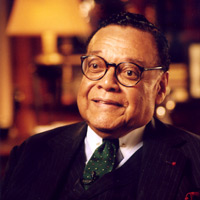 There was a time when one name symbolized the historic legacy of the Republican Party’s connection to Black Americans – William T. Coleman. A “lawyer’s lawyer,” Coleman was a power player who epitomized the Washington insider. Born July 7, 1920 in Philadelphia, Coleman graduated summa cum laude from the University and Pennsylvania in 1941 and magna cum laude from Harvard Law School in 1946.
There was a time when one name symbolized the historic legacy of the Republican Party’s connection to Black Americans – William T. Coleman. A “lawyer’s lawyer,” Coleman was a power player who epitomized the Washington insider. Born July 7, 1920 in Philadelphia, Coleman graduated summa cum laude from the University and Pennsylvania in 1941 and magna cum laude from Harvard Law School in 1946.
Following his graduation from Harvard, he served as law clerk to Judge Herbert F. Goodrich of the United States Court of Appeals for the Third Circuit and then clerked for Supreme Court Justice Felix Frankfurter in 1948. Coleman was the first Black to serve as a clerk in the United States Supreme Court. He was one of the principal authors of the brief in the historic Brown v. Board of Education case that resulted in the Supreme Court ruling school segregation unconstitutional.
William Coleman was closely associated with the NAACP, serving as a member of the civil rights group’s national legal committee, its executive committee and president of the NAACP Legal Defense and Educational Fund. His legal prowess earned him widespread respect and he soon became a much sought after figure at the highest levels of government. He was appointed a member of President Dwight D. Eisenhower’s Committee on Government Employment Policy, a senior consultant and assistant counsel to the President’s Commission on the Assassination of President Kennedy (The Kerner Commission), and served for twelve years as a consultant to the U.S. Arms Control and Disarmament Agency.
Coleman came into the national spotlight when President Gerald R. Ford named him Secretary of Transportation on March 7, 1975. The appointment made him only the second Black American at the time, after Dr. Robert C. Weaver, to serve as a Cabinet Secretary. One of the accomplishments of his tenure at DOT was the establishment of the National Highway Traffic Safety Administration’s automobile test facility, setting the groundwork for numerous improvements in automobile safety. Upon leaving the Department of Transportation he became a partner in the law firm O’Melveny and Myers, in their Washington office.
In 1996 Coleman was called back into government service after the July 17 crash of TWA Flight 800. He was appointed to the President’s Commission on Airline Safety and Airport Security. That year he would also receive the highest honor given to a civilian, the Presidential Medal of Freedom from President Bill Clinton. In September 2004 William Coleman was appointed to the United States Court of Military Commission Review.

today in black history
February 24, 2026
A.M.E. Bishop Daniel Payne, first Black president of a Black college (Wilberforce), is born on this date in 1811 in Charleston, SC.
Black History Profile
William T. Coleman
POSTED: February 10, 2009, 12:00 am



















